Participating Schools
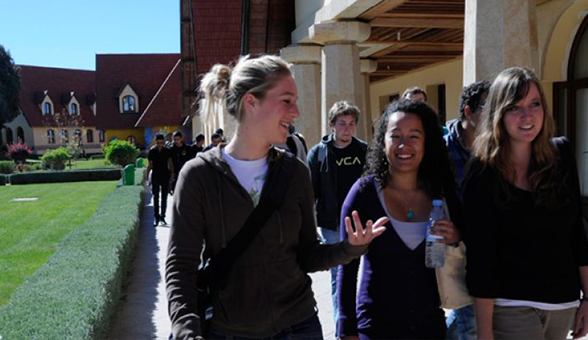
Al Akhawayn University in Ifrane
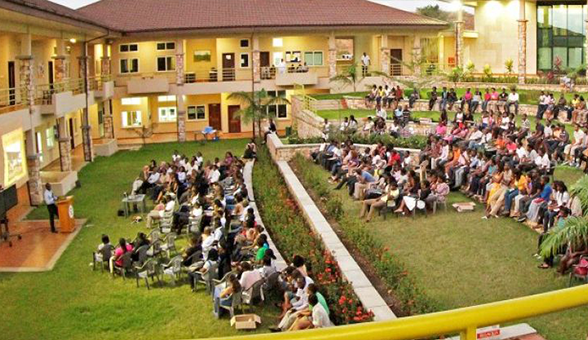
Ashesi University College
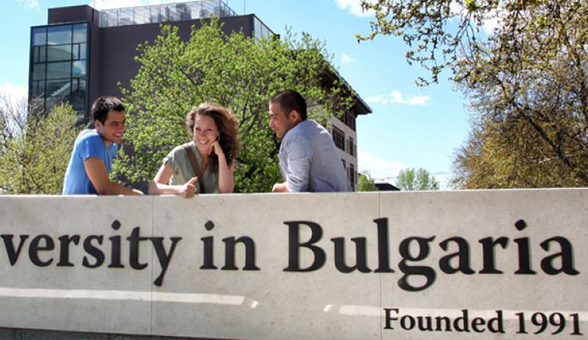
American University of Bulgaria
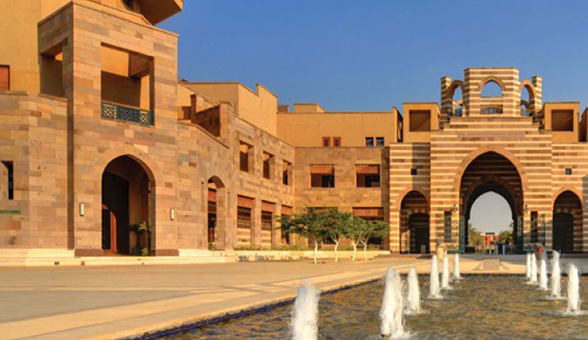
The American University in Cairo
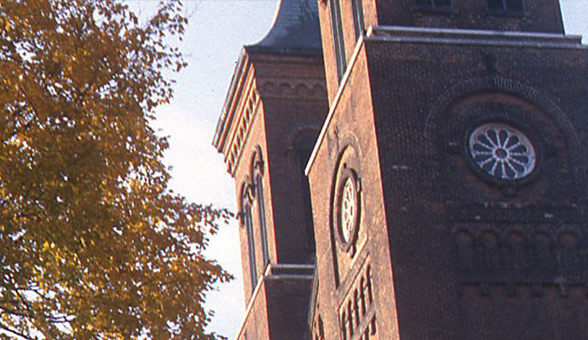
Antioch College
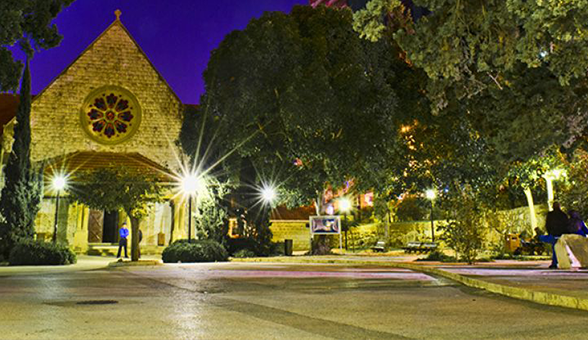
American University of Beirut
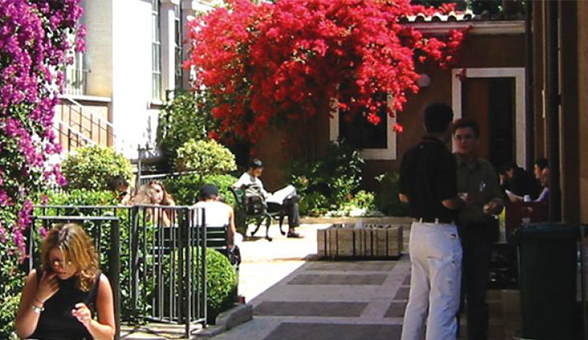
John Cabot University
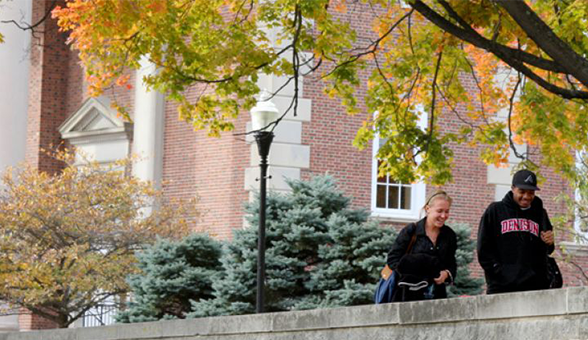
Denison University
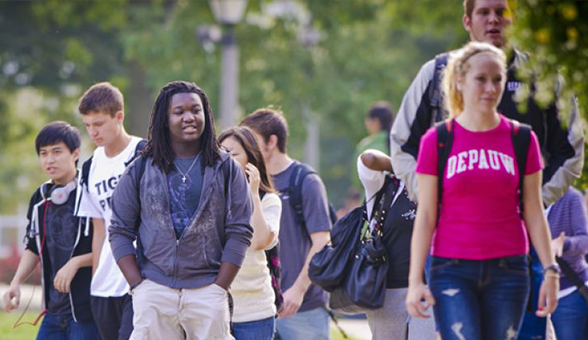
Depauw University
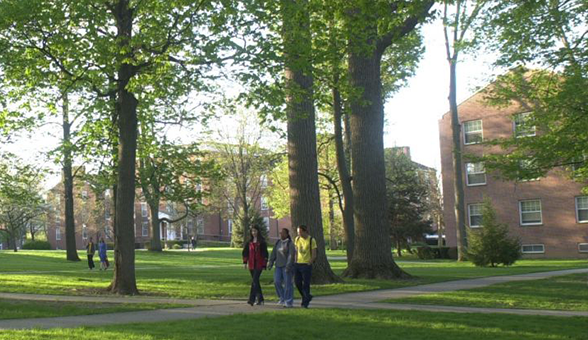
Earlham College
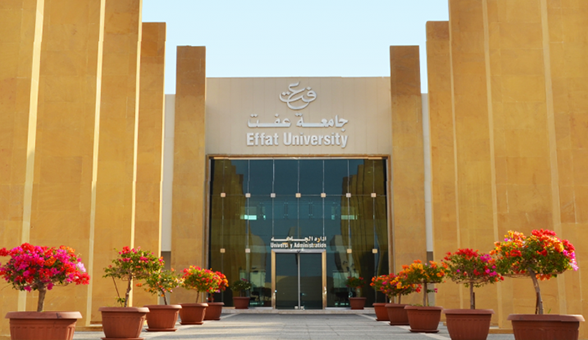
Effat University
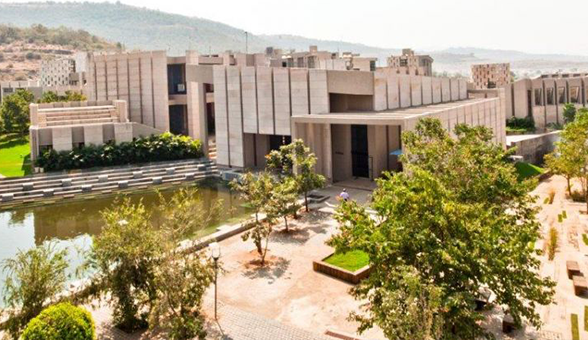
FLAME University
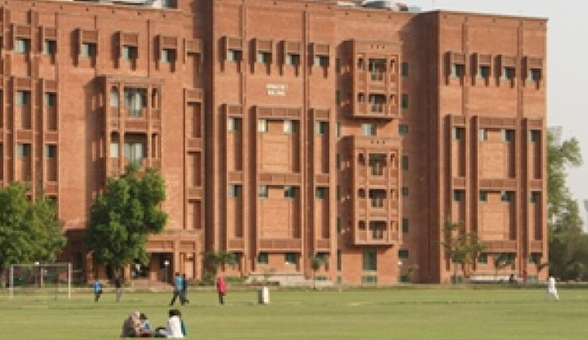
Forman Christian College
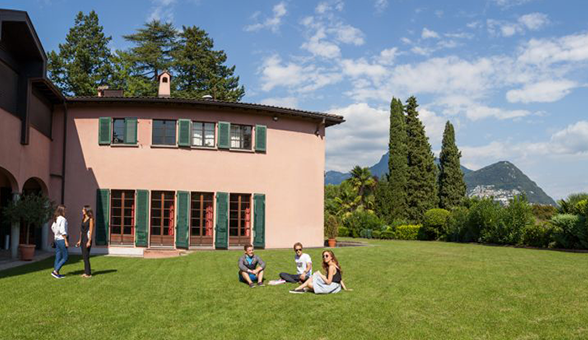
Franklin University Switzerland
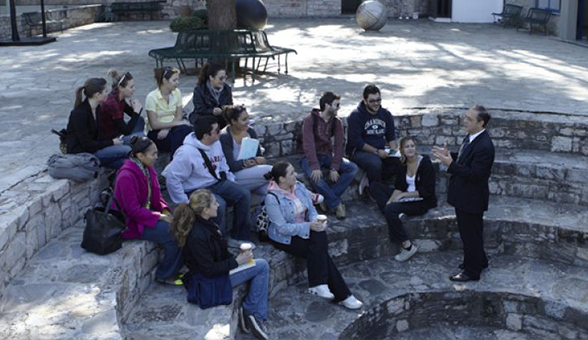
American College of Greece
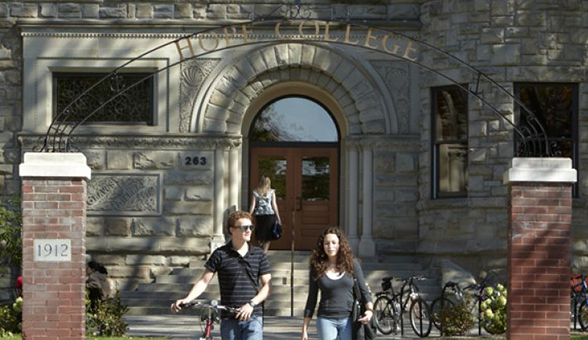
Hope College
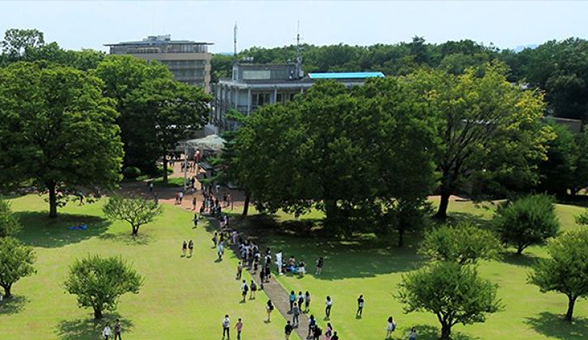
International Christian University
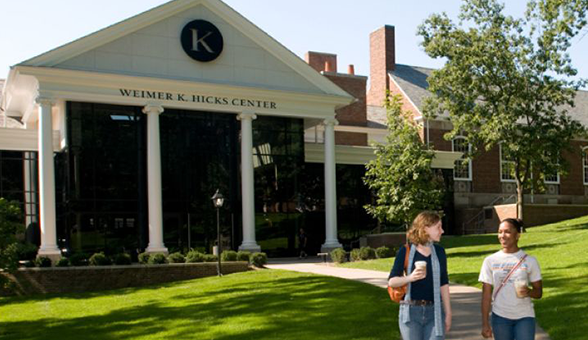
Kalamazoo College
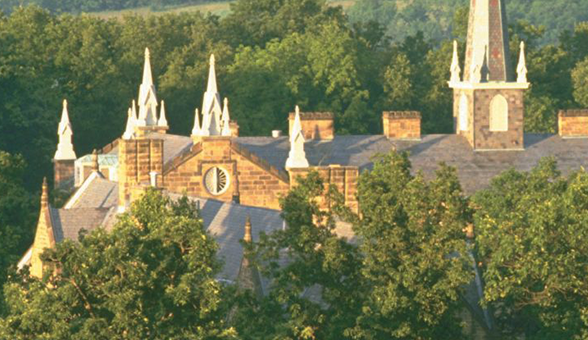
Kenyon College
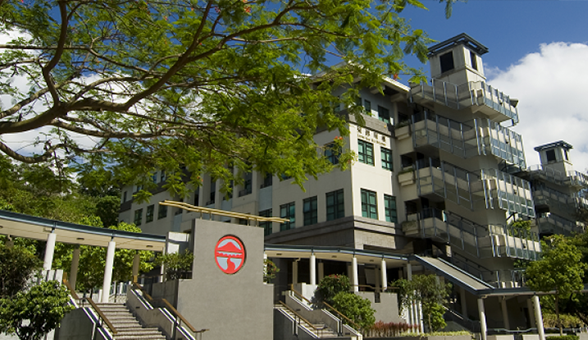
Lingnan University
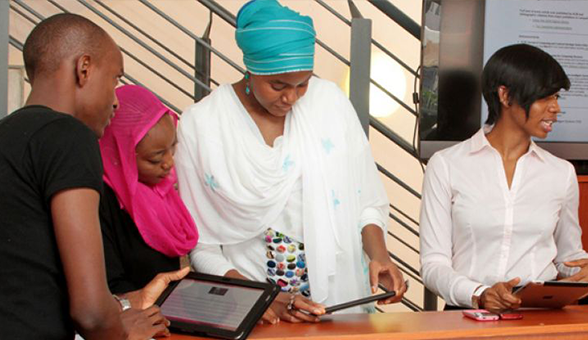
American University of Nigeria
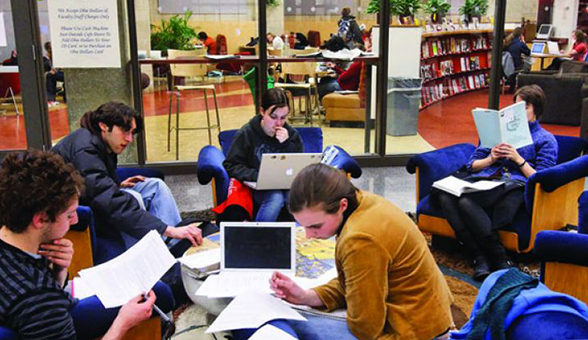
Oberlin College
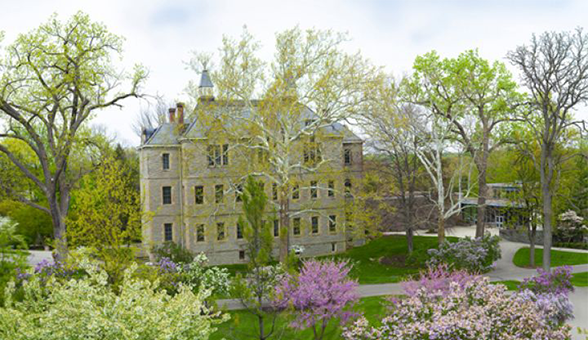
Ohio Wesleyan University
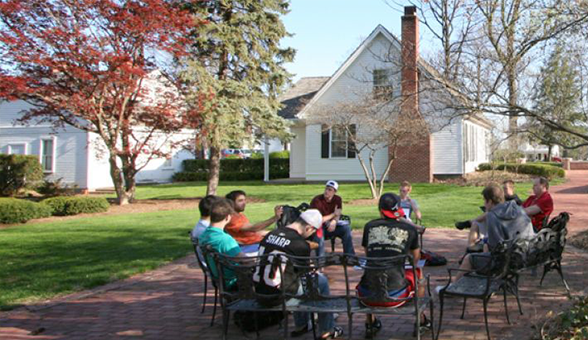
Wabash College
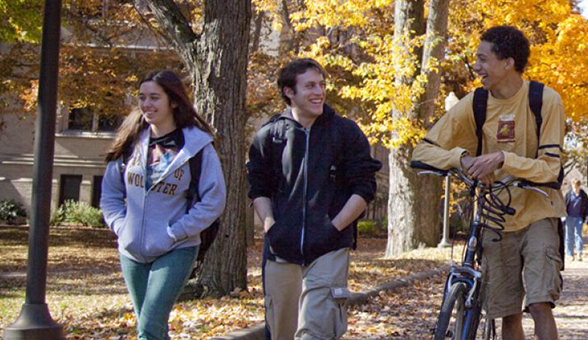
The College of Wooster
The Great Lakes College Association includes 13 institutions in Ohio, Michigan, Indiana and Pennsylvania. In addition, 16 international schools are participating in the Global Liberal Arts Alliance.
Great Lakes College Association
OHIO REGION
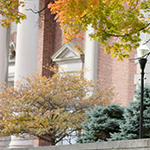
Denison University
Denison University in Granville, Ohio, is a private and independent liberal arts college that was founded in 1831 and whose purpose is to inspire and educate students to become autonomous thinkers, discerning moral agents and active citizens of a democratic society. Denison has approximately 201 faculty members and 2050 undergraduate students from 27 countries, and 49 US states and territories. 48 courses of study are on offer, and Economics, Biology, Communication, Psychology and English are the largest programs. View Denison's academic calendar.
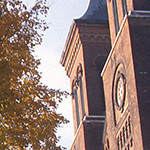
Antioch College
Located in Yellow Springs, Ohio, and founded in 1852, Antioch College is a pioneering and values-driven secular institution. The College was among the first non-sectarian educational institutions in the U.S., the first to appoint a woman to its faculty and Board of Trustees, the first co-educational college in the nation to offer the same opportunities to men and women and one of the first to offer African Americans equal educational opportunities. In the 20th Century, Antioch College redefined liberal arts education by initiating an entrepreneurial and experiential curriculum through the development of its renowned cooperative work program. View Antioch's academic calendar.
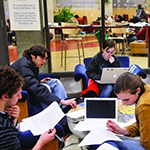
Oberlin College
Oberlin College was established in 1833 by Presbyterians but is presently independent. It consists of a liberal arts college and a conservatory of music which promotes academic, artistic and musical excellence. Oberlin has 285 full-time faculty members and 2865 students from the United States, China, South Korea, Canada and Japan. 52 majors are offered; the largest are Music Performance, Politics, English, Biology and History. The college also offers a Graduate Teacher Education Program and a Master of Music Teaching degree program. View Oberlin's academic calendar.
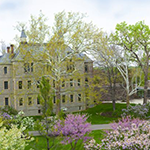
Ohio Wesleyan University
Ohio Wesleyan University was founded in 1842 by the United Methodist Church, with which it remains affiliated, although it is independent in operation. With its 135 faculty members, OWU imparts knowledge to, and develops and enhances certain important capabilities within its students, and places education in the context of values. Ohio Wesleyan University has 1940 full-time and 20 part-time students, 22 departments, 9 interdisciplinary programs and approximately 70 majors, with the largest being Psychology, Economic Management, Zoology, English, and Politics and Government. View Ohio Wesleyan's academic calendar.
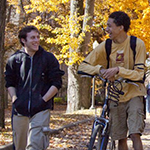
The College of Wooster
The College of Wooster is an independent residential liberal arts college that was founded in 1866 by Presbyterians, and offers a rigorous and comprehensive education to students with the capacity and motivation to become educated leaders in a complex global society. Wooster has a distinctive approach to liberal education, focused on developing in each student the capacities for independent inquiry, research, and problem solving. For over 60 years every graduate has completed a year-long independent research project, mentored one-on-one by a faculty member. With an on campus enrolment of 1850, last year's entering class included approximately 10% international students from 37 countries, 10% students of African-American heritage, and 5% multi-ethnic students. Wooster offers 44 majors, with especially strong programs in Chemistry, Geology, Physics, History, Political Science, International Relations and Philosophy. View Wooster's academic calendar.
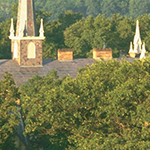
Kenyon College
Kenyon College was established by the Episcopal Church in 1824; the college still operates under the Church's aegis. Kenyon strives to enable its graduates to deal effectively with unforeseen problems, develop critical capacities, skills and talents, speak and write clearly, discriminate between the essential and the trivial, arrive at well-informed value judgments, work independently and with others, and comprehend all cultures. As of this writing, it has 188 faculty members and 1569 students; with 18 departments, the largest majors are English, History and Political Science.
View Kenyon's academic calendar.
MICHIGAN REGION

Hope College
Hope College was founded in 1866 by the Reformed Church in America, under whose auspices it operates. It educates students for lives of leadership and service in a global society through academic and co-curricular programs of recognized excellence in the liberal arts and the context of the historic Christian faith. Hope has 328 faculty members and 3153 undergraduate students who represent the United States and 30 other countries. With 24 departments and 84 majors, the largest programs of study at Hope include Management, Communication, Psychology, Biology, Political Science and English. View Hope's academic calendar.
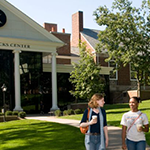
Kalamazoo College
Kalamazoo College is an independent liberal arts college that was founded in 1833 by American Baptists. The college prepares its graduates to better understand, live successfully within, and provide enlightened leadership to a richly-diverse and increasingly-complex world. Kalamazoo has 95 full-time faculty members and 1369 students from 38 states and 31 countries, including Argentina, China, Ghana, India, Jamaica, and Mexico. The college's 20 academic departments offer 31 majors, with the most popular programs of study being Economics & Business, Psychology, Biology, and English. Kalamazoo's nationally recognized curriculum, the K-Plan, enables students to participate in an integrated learning experience combining intense liberal arts academics with immersive study abroad, career internships, service-learning, and independent research. Through the college's Arcus Center for Social Justice Leadership students develop leadership skills in the fields of human right and social justice. View Kalamazoo's academic calendar.
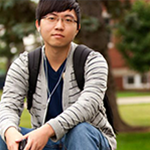
Albion College
Albion College was established in 1835, and is an independent and undergraduate liberal arts institution which is learning-centered and recognizes that valuable learning occurs in and outside the classroom, and on and off-campus. Albion currently has 122 faculty members and 1700 students from several countries, including but not limited to the United States, China, The Bahamas and Greece. It offers 30 undergraduate programs, with Biology, Psychology, Economics and Management being particularly popular. View Albion's academic calendar.
INDIANA REGION
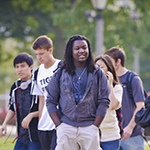
Depauw University
Founded in 1837, DePauw University is a residential liberal arts college that provides a diverse learning and living community which is distinctive in its rigorous intellectual engagement, and international and experiential learning opportunities. It has 240 faculty members and 2204 undergraduate students from the United States, China, India, Vietnam, South Korea, Bulgaria, Japan, Ghana and elsewhere. DePauw has 36 departments or programs; Music, English, Kinesiology, Modern Languages, Economics, Communication & Theatre and Anthropology are quite popular majors. View Depauw's academic calendar.
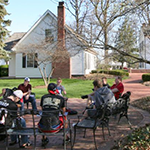
Wabash College
Wabash College is an independent liberal arts college for men that was established in 1832 and boasts loyal alumni. It encourages men to think critically, act responsibly, lead effectively and live humanely. It has 83 faculty members (they come from countries as diverse as Chile, Ethiopia, China, Korea, Brazil, Slovenia, India, Uganda, Poland, Spain and Austria) and 871 full-time students from the United States, China, Bangladesh, Mexico and Bolivia. Wabash has 17 departments and offers 21 majors; History, Psychology and Biology are the largest programs.
View Wabash's academic calendar.
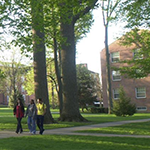
Earlham College
Earlham College was established by the Religious Society of Friends (Quakers) in 1847. Among the nation's academically-strongest liberal arts colleges, Earlham develops in its students broad and deep competencies in both traditional and emerging disciplinary and interdisciplinary fields. It has 104 faculty members and 1184 students from 81 countries including Japan, Palestine, Jamaica, China and India, among other countries. Earlham offers 32 undergraduate majors (English, Psychology and the Natural Sciences remain the largest), and a Master of Arts in Teaching (MAT) and Master of Education (MEd) degree programs. View Earlham's academic calendar.
PENNSYLVANIAN REGION
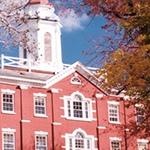
Allegheny College
Allegheny College is an independent liberal arts college which prepares young adults for successful and meaningful lives by promoting students' intellectual moral and social development, and encouraging personal and civic responsibility, and where students with myriad interests, skills and talents excel. Founded in 1815, Allegheny has 183 faculty members and approximately 2125 students from diverse backgrounds. The college offers 48 undergraduate degree programs, including Biology, Economics, Psychology, Political Science and English. View Allegheny's academic calendar.
Global Liberal Arts Alliance Schools
SOUTH AMERICA
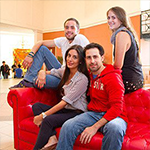
Universidad San Francisco de Quito (USFQ) – Quito, Ecuador
USFQ, located in Quito, Ecuador, was founded in 1988. It serves the community through a liberal arts philosophy to educate diverse individuals to be free, environmentally aware, entrepreneurial, creative and independent. The university enrolls about 4500 undergraduates and 1000 graduate students; about 10 percent are from indigenous groups (for whom Spanish is a foreign language) and about 1000 international students are enrolled. With a significant general education requirement that comprises at least 30 percent of courses taken for graduation and a range of programs in the humanities, social sciences and sciences, USFQ also offers professional programs including law, health sciences, business, tourism, hospitality and architecture and operates biological/ecological research stations in the Amazon and in the Galapagos. Courses are taught in Spanish (90 percent) and English (10 percent), and most faculty and many administrators speak English, and English proficiency is a graduation requirement. While there is a very active campus life (student government, clubs, activities), students are non-residential. The university is accredited by the Ecuadorian Council of Evaluation and Accreditation of Higher Education and is one of only three universities in Ecuador to have the highest quality rating. View USFTQ's academic calendar.
AFRICAN REGION
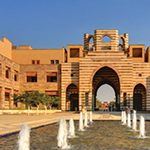
The American University in Cairo
Founded in 1919, The American University in Cairo (AUC) is an independent and non-profit university that promotes the ideals of American liberal arts, professional education, lifelong learning and service to Egypt and the region. The AUC has 435 faculty members and 6064 students, mostly from Egypt and the U.S. Thirty undergraduate majors, including business administration, journalism & mass communication, mechanical engineering, and twenty-seven graduate majors, including business administration, political science, computer science and Middle East studies, are offered at AUC. View American University in Cairo's academic calendar.
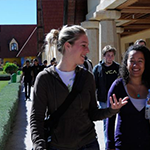
Al Akhawayn University in Ifrane
Established in 1995, Al Akhawayn University in Ifrane (AUI) is an independent, public, not-for-profit, coeducational Moroccan university committed to educating future citizen-leaders of Morocco and the world through a globally oriented, English-language, liberal-arts curriculum based on the American system. The University enhances Morocco and engages the world through leading-edge educational and research programs, including continuing and executive education, upholds the highest academic and ethical standards, and promotes equity and social responsibility. AUI presently has 138 faculty members from 15 different countries and 1764 students who are from Morocco and 21 other nations. The University offers 7 Bachelor and 12 Master degree programs in its three schools: Business Administration, Humanities and Social Sciences, and Science and Engineering, and its Executive Education Center.
View Al Akhawayn's academic calendar.
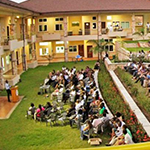
Ashesi University College
Ashesi University College Ashesi means "beginning" in the native Ghanaian language Akan. Founded in 2002, Ashesi is a private, non-profit liberal arts college located in Ghana, West Africa. The university's mission is to educate a new generation of ethical and entrepreneurial leaders in Africa; to cultivate within students the critical thinking skills, the concern for others and the courage it will take to transform their continent. Ashesi has 631 students from 22 countries. The school offers a four-year bachelors program grounded in a liberal core curriculum, featuring majors in Business Administration, Management Information Systems, Computer Science, Electrical and Electronic Engineering, Computer Engineering and Mechanical Engineering. Set on 100 acres in Berekuso, overlooking Ghana's capital city of Accra, Ashesi’s campus unites traditional Ghanaian design, modern technology and environmental best practices.
View Ashesi's academic calendar.

American University of Nigeria
The American University of Nigeria (AUN) was established in 2004 to serve as an agent of economic development, and a model of post-secondary education for Nigeria and the West African sub-region. The university welcomed its first set of students in 2005. Now, AUN has 102 faculty members from over 30 countries and 1500 students - from early learning through PhD. Students are from various parts of Africa, including substantially Nigeria, Cameroun, Rwanda, South Africa among others. The University currently has 15 undergraduate programs across three schools - School of Arts and Science, School of Business and Enterprise, and School of Information,Technology and Computing. A new School of Law, created to focus on human rights law and advocacy is currently undergoing national accreditation. The School of Graduate Studies has post-graduate programs in Information Technology and in Business. A unique academic experience for students in AUN is a mandatory community development civic engagement course. All students, irrespective of Major, undertake community service where they apply lessons in class to real world challenges in their local community.
View American University of Nigeria's academic calendar.
ASIAN REGION
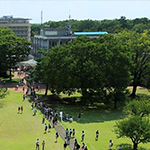
International Christian University
International Christian University is Japan’s first liberal arts college. It was founded in 1953 based on Christian principles, with the aim of “cultivating capable individuals, educated as internationally minded citizens, who will serve both God and people and who will contribute to lasting peace.” ICU offers a fully bilingual education in Japanese and English. The liberal arts education, provided by its undergraduate college, allows students to pursue an in-depth study in any of approximately 30 majors. At the same time, this education highlights the dynamic possibilities that can emerge as students experience areas that transcend and connect academic disciplines. The ICU tradition emphasizes interaction, and its campus offers an environment where students can interact fluently with faculty and staff outside the classroom. This campus, without parallel, was provided to ICU in the wake of the destruction from World War II, through the generous donations of a great many people who supported the university’s founding principles.
View International Christian University's academic calendar.
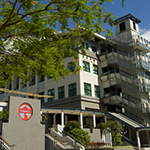
Lingnan University
Founded in Guangzhou in 1888 and re-established in Hong Kong in 1967, Lingnan University aspires to become a leading Asian liberal arts university with international recognition, distinguished by outstanding teaching, learning, scholarship and community engagement. With the longest history among the tertiary education institutions in Hong Kong, Lingnan University takes pride in the provision of quality whole-person education by combining the best of Chinese and Western liberal arts traditions; a combination of liberal arts with specialized disciplinary education, including professional and pre-professional education; and an optimal balance between teaching and research. With three Faculties (i.e. Arts, Business and Social Sciences) and a growing Science Unit, the University is committed to providing students with a unique liberal arts education, which is characterized by a broad and interdisciplinary curriculum, small classes, a vibrant residential campus, and abundant global learning opportunities. Named by Forbes magazine as a top 10 liberal arts college in Asia in 2015, Lingnan University transforms students through an all-rounded education and prepares them for future success in a rapidly changing world. View Lingnan's academic calendar.
MIDDLE EASTERN REGION

FLAME University
FLAME University is a state private university established at Pune (India) under the FLAME University Act 2014 of the Government of Maharashtra State (India) and is recognized by the University Grants Commission (UGC), the higher education regulator in India. FLAME University is the pioneer of liberal education in India. The University’s main objective is to offer an inter-disciplinary platform of education that provides both breadth and depth in diverse areas of knowledge, and in the process instill a habit of lifelong learning and inquiry amongst students, leading to the advancement of their well-being. The liberal education ethos at FLAME University inculcates leadership and risk-taking abilities in students and focuses on discovering one’s passion. The student-centric learning is delivered by esteemed faculty scholars in a world-class campus setting. At the core of everything FLAME University does, is a desire to give something back to society in a noble manner. View FLAME's academic calendar.
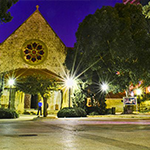
American University of Beirut
Founded in 1866, the American University of Beirut bases its educational philosophy, standards, and practices on the American liberal arts model. A teaching-centered research university, AUB has 700 faculty members, a student body of 8,000 and a major medical center that serves Lebanon and the region. Professional schools include engineering, medicine, business, agriculture, health sciences, and the arts. The university encourages freedom of thought and expression and seeks to graduate men and women committed to creative and critical thinking, life-long learning, personal integrity, civic responsibility and leadership. View AUB's academic calendar.
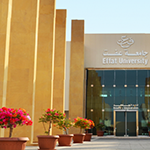
Effat University
Effat University, which was founded in 1999, is the living legacy of Queen Effat's vision for education. The institution is independent, embodies Islam's quest for knowledge, truth and enlightenment, and educates tomorrow's leaders by providing an interdisciplinary environment that is conducive to research, community service, and lifelong learning. Effat has a diverse group of 159 faculty members and approximately 2871 female students from the Middle East, Africa, Asia, Europe, and North America. The University has four colleges, namely Effat College of Science and Humanities, Effat College of Business, Effat College of Engineering, and Effat College of Architecture and Design; and 13 departments with Architecture, Business programs offerings, Information Systems, Visual and Digital Production and English & Translation being the largest undergraduate majors. The university also offers 3 unique graduate programs which are Masters in Islamic Financial Management, Masters in English & Translation, and Masters in Urban Design.
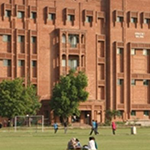
Forman Christian College
Forman Christian College was established in 1864 by the Presbyterian Church USA but is independent, although the PC(USA) owns the campus. It seeks to impart, create and disseminate knowledge, and develop informed, ethical and responsible citizens who are prepared and committed to learn, lead and serve. Forman has 197 faculty members, 2,791 students enrolled in undergraduate degree programs, 183 in Masters programs and 2,468 in its Intermediate Program, which is the equivalent of the 11th and 12th grades in the United States; virtually all Forman students are from Pakistan. With nineteen majors, the largest undergraduate programs are as follows: Business, Economics, Chemistry, Mass Communication and Political Science, while Forman's MBA program is its largest postgraduate program. View Forman's academic calendar.
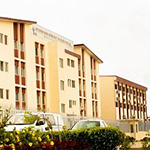
International University of Grand-Bassam (IUGB) - Cote d'Ivoire (Ivory Coast)
IUGB is located in Grand-Bassam in Cote d'Ivoire (Ivory Coast), about 30 minutes from the capital of Abidjan. It is an English-language, American-style university in francophone Africa, which provides "internationally recognized higher education through technology-enhanced English medium instruction in fields critical to regional development, international success, and life-long learning." Students must complete a core curriculum of a minimum of 45 credit hours that involves courses in the humanities, social sciences and sciences; in addition, at least one internship is required. Their goal is to "produce qualified and skilled personnel who are trained in problem resolution and intercultural cooperation." The university was founded in 2005 and enrolls 764 students from 22 countries and is committed to gender, ethnic, and socio-economic diversity. All courses are taught in English. Majors include business administration, political science, mathematics, computer science and engineering technology; minors and areas of concentration are offered in international relations, accounting, finance, economics, marketing and management. Students are encouraged to engage in co-curricular activities, to attend presentations by guest speakers and to participate in study visits and nearly half live in campus residences. The university is nonprofit and independent, and accredited by the Côte d’Ivoire government. Uniquely, it has been granted the status of a diplomatic mission, so is completely free of government control. View IUGB's academic calendar.
EUROPEAN REGION
The American University of Paris
The American University of Paris (AUP), fast approaching its 50th anniversary, was founded by an American foreign service officer who believed, after World War II, that American students required a different kind of education, one that would "de-provincialize" them, awaken them to cultural differences, and prepare them to take their places in a world held increasingly in common. Once a two-year institution for the children of expatriate Americans returning to the States via articulation agreements with Ivy League schools, AUP is today a master's university, home to students from 100 different nationalities, and faculty from 30, fourteen different undergraduate majors and nine master's programs. A survey of entering-class languages and dialects taken annually between 2001 and 2009 reveals that 89 different languages were represented on our campus between those dates—the figure rises to 97 if one factors in the results of a faculty language survey taken in 2002. AUP is one of the most genuinely diverse, and thereby pedagogically rich, small liberal arts institutions in the world today. The mix of ethnicities, nationalities, languages, cultures and faiths that characterize the AUP classroom makes this University a living laboratory for higher education in a globalized world. AUP's curriculum, from the first-year learning communities through the graduate programs, takes advantage of this diversity in its approach to issues of identity and global interdependence. Indeed, in recognition of our curricular reform, we were distinguished by the AAC&U in 2003 as one of eleven leadership schools in "Liberal Education for Global Citizenship." View the American University of Paris' academic calendar.

American College of Greece
The American College of Greece (ACG) was founded in 1875 in Smyrna, Asia Minor as a school for girls by American, Congregational, women missionaries. In 1922 the College relocated to Athens, Greece. In 1961 the College began its operation under an independent, self-perpetuating board of trustees. The College moved to its current 64-acre main campus on Mt. Hymettus overlooking Athens in 1965; a downtown campus was added in 1993. ACG has two educational divisions: PIERCE, one of Greece's premier private high schools (800 students in grades 7-12) and DEREE, the higher education division, which offers 21 undergraduate majors in the arts and sciences and business and six masters degree programs in applied psychology, business, communication, finance, leadership, and marketing. In 1981 DEREE became the first international American college or university to be accredited by the New England Association of Schools and Colleges. Currently DEREE enrolls over 3,000 students from 56 countries, making it the largest American college or university in Europe. Thirty-three thousand ACG alumni serve in Greece and around the world in virtually every field of human endeavor. View the American College of Greece's academic calendar.

Franklin University Switzerland
Franklin University Switzerland is an American International institution of higher learning, established in 1969, whose sole campus lies in the city of Lugano, near the border with Italy. Franklin is accredited by the Middles States Commission on Higher Education in the US and its academic programs are recognized by OAQ/CUS, the Swiss accrediting agencies, making it the only institution with dual US-Swiss accreditation. Franklin's emphasis is on international education and the liberal arts, which it integrates into a wide range of majors and interdisciplinary programs in the applied sciences and the humanities, including International Management; International Relations; International Banking and Finance; Environmental Studies; International Economics; Communications and Media Studies; Visual and Communication Arts; and Comparative Literary and Cultural Studies. This global focus can also be seen in Franklin's signature Academic Travel Program, in which each semester all students travel with faculty to destinations around the world for field work, service learning, or cultural immersion, for a total of nearly 40 such trips each academic year. In fall 2010, the College had 50 total faculty and 450 students, approximately 65% of whom from the US, 20% from Europe and 10% from the Middle East. Nearly 85% of the student body lives in college residences, which also contributes to purposeful intercultural learning. Under the auspices of Franklin's newly formed Taylor Institute for Global Enterprise Management, in fall 2011 Franklin will launch its first Master's program, an MSc in International Management, which has already been accepted for inclusion under Franklin's accreditation by Middle States. View Franklin's academic calendar.
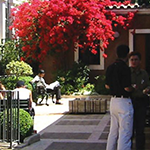
John Cabot University
John Cabot University was founded in 1972 and endeavors to provide an educational experience firmly rooted in the American liberal arts tradition and solidly international in orientation. The programs are designed to harness the strengths of its multicultural faculty and an international student body, and the extraordinarily-rich culture and history of Rome and its environs. John Cabot has over 100 faculty members (13 full-time), and 360 degree-seeking and 500 visiting students from the U.S., Italy and the European Union. It offers 13 majors, including International business, communications and international affairs. View John Cabot's academic calendar.
EASTERN EUROPE
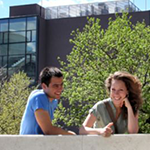
American University of Bulgaria
The American University in Bulgaria (AUBG) is a selective and residential liberal arts institution that was established in 1991 to educate students of outstanding potential in a community of academic excellence, diversity, and respect and to prepare them for democratic and ethical leadership in serving the needs of the region and the world. AUBG is accredited both in the US and in Bulgaria. Courses are taught in English by high-quality faculty coming from four continents, experienced in teaching in a multicultural, learner-centered environment. Currently, there are about 1,100 students studying at AUBG, representing 40 countries. It offers 9 undergraduate programs in Business Administration, Computer Science, Economics, European Studies, History and Civilizations, Information Systems, Journalism and Mass Communication, Mathematics, Political Science and International Relations, and an Executive Master of Business Administration (EMBA) program. The success of the University is attested by the 3,000 alumni who have already found their place in prestigious companies, started their own successful businesses, or have continued their education at renowned universities worldwide. Even Bulgaria's newly launched university ranking system recognized the quality of education at AUBG. The University leads all Bulgarian universities in terms of the employability of its graduates and the incomes they earn, according to the system. View American University of Bulgaria's academic calendar.
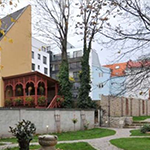
Bratislava International School of Liberal Arts
Founded in 2005, Bratislava International School of Liberal Arts (BISLA) is the first liberal arts college in Slovakia; its undergraduate degree programs aim to convey general knowledge and develop students' intellectual capacity. BISLA currently has 14 faculty members (5 full-time) and 55 students. It intends to remain small and international in order to maintain an environment conducive to vigorous discussions. BISLA's core curriculum is based on political science with offerings in other social science disciplines and the humanities, namely history, philosophy, sociology, anthropology, theatre and fine arts, and literature. View Bratislava's academic calendar.